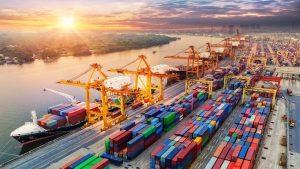Nigeria’s Free Trade Zones (FTZs) are facing trade abuse allegations from manufacturers who cite loopholes in regulatory oversight.
FTZs were created to drive industrialisation, diversify export earnings and attract Foreign Direct Investment (FDI). With over $200 billion in foreign investments and N900 billion in local investments, FTZs like Lagos Free Zone, Lekki Free Zone and Alaro City have become central to the country’s economic diversification agenda.
Yet, new tensions are emerging. Local manufacturers and industry groups are raising red flags over the 100 percent allowance that enables companies operating in FTZs to sell goods directly into Nigeria’s customs territory without facing some of the same tax and regulatory burdens as indigenous manufacturers outside the free zones.
The concerns come as the federal government also moves to introduce a 25 percent Company Income Tax (CIT) on FTZ entities through the proposed 2024 Finance Bill, sparking fears of policy instability that could choke off critical investments at a fragile moment for the economy.
“Free Trade Zones have been integral to promoting manufacturing in many developing and developed countries,” explained Samuel Sule, CEO, Renaissance Capital Africa.
Free Zones are designed to stimulate foreign direct investment (FDI), boost industrialisation, and create employment opportunities hence a difference in the duty regime for inputs.
These benefits enjoyed by entities under the free zones have allowed them to create more than 500,000 jobs and generated over N650 billion through various government agencies and schemes, including the Nigeria Customs Service, Nigeria Ports Authority, Nigeria Immigration Service, and P.A.Y.E. in the last five years.
Available data show that the Lagos Free Trade Zone (LFTZ) Command of the Nigeria Customs Service has more than quadrupled revenue from N25 billion in 2022 to N358 billion in just two years.
And just in the first quarter (Q1) of this year, the command responsible for Lagos, Lekki, Dangote, Alaro City, and Eko Atlantic Free Trade Zones recorded N113 billion in revenue, underscoring the economic importance of the free zones in Nigeria’s fiscal stability.
FTZs: A growing economic engine
According to data from the Nigeria Export Processing Zones Authority (NEPZA), Nigeria currently hosts 46 licensed free zones, although fewer than half are fully operational. Active zones like Lagos Free Zone, Alaro City, and Lekki Free Zone have attracted billions of dollars in private investment, spanning manufacturing, logistics, and services.
Lagos Free Zone alone has attracted more than $2.75 billion in FDI year-to-date with projections of hitting $12 billion by 2032. It houses big firms, both local and international, such as Power Oil, Kelloggs, Colgate, Dano and the recently opened Italian-owned Guala Closures.
LFZ has over 30 registered companies with plans to expand to 150 over the next few years. But inconsistent policies, coupled with currency fluctuation, are putting investors in ‘cautious mode.’
Alaro City, which became operational barely six years ago, has spurred over $1 billion in economic development across key sectors such as manufacturing, healthcare, and logistics sectors. It is home to investments by notable global and local businesses such as TY Holdings, Mantrac (CAT), Ariel Foods, Kenol, SANA Group and international real estate developers and investors.
Its first client, Ariel Foods, the largest Ready-to-Use Therapeutic Food (RUTF) manufacturing plant in West Africa, changed Nigeria from a net importer of RUTF to a net exporter, exporting to about 17 countries.
“Many international investors are interested in bringing investments here. They are just waiting for the naira to stabilise, which is already happening, and observing activities within the minimum wage and the tax reform bills,” a top executive of one of the free zones, who is knowledgeable about the matter, said.
With the upcoming completion of the Lekki Deep Sea Port, FTZs located along the Lekki corridor are expected to consolidate Nigeria’s position as a regional trade hub, facilitating more investments and growing Africa’s biggest oil producer revenue base.
Local manufacturers cry foul
Sources who are conversant with the matter disclosed to BusinessDay that the primary grievance among Nigerian manufacturers is the huge cost disparity between companies operating within the customs territory and those in FTZs.
One of the sources said manufacturers who import raw materials and operate outside FTZs pay as high as 35 percent on essential raw materials such as palm oil and ethanol.
Meanwhile, competitors within FTZs bring in the same raw materials duty-free, process them, and allegedly sell their finished products within Nigeria’s local market without fulfilling their tax obligations.
“This practice creates a deeply uneven playing field. A company operating outside an FTZ may have a final product cost that is nearly 10 times higher than a competitor benefiting from FTZ privileges,” said one of the sources, who is a senior business owner. “This cost structure forces compliant businesses into losses and, in extreme cases, into bankruptcy,” the source added.
According to Segun Ajayi-Kadir, director-general of Manufacturers Association of Nigeria (MAN), “Tax exemption enjoyed by the companies operating within the zones renders more than 2,500 members who operate outside the zone less competitive”.
Kadir added that this position is not consistent with the law, and it undermines tax-paying entities operating within the customs territory and producing similar goods and services.
NEPZA Act of 1992 permitted 25 percent sales in the Customs territory. But under the current FTZ framework, firms operating within the zones are allowed to sell 100 percent of their output into Nigeria’s customs territory, provided they pay applicable duties on imported inputs, according to the 2004 NEPZA Regulation and a Presidential directive.
This provision, originally intended to create flexibility and stimulate local production, is increasingly seen by domestic manufacturers as a loophole that allows FTZ firms to enjoy: tax exemptions cheaper infrastructure (power, logistics, water) provided by the zones, while competing directly with local firms struggling under multiple tax burdens, poor infrastructure, and inconsistent policy environments.
“How do you expect a manufacturer paying over 30 different levies and operating on diesel generators to compete with a tax-exempt competitor?” said a Lagos-based textile manufacturer, requesting anonymity for fear of reprisals. (BusinessDay)


